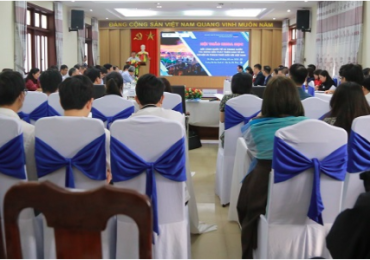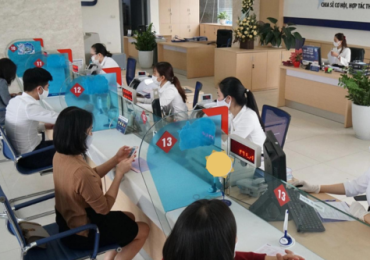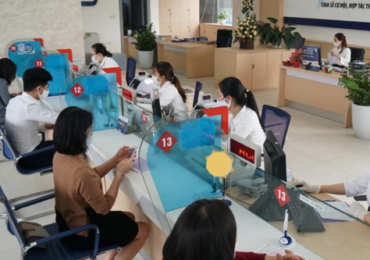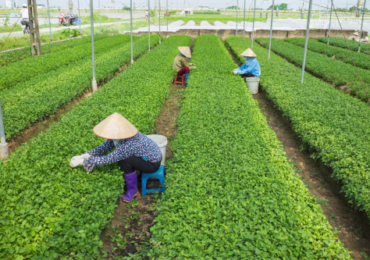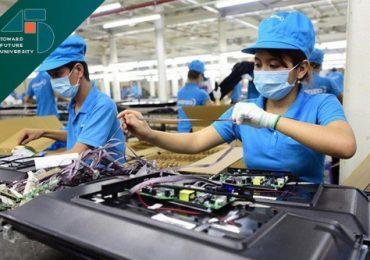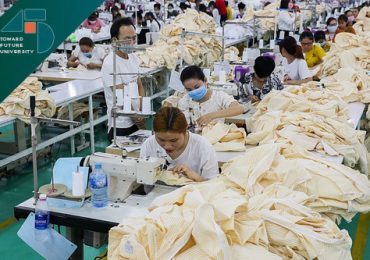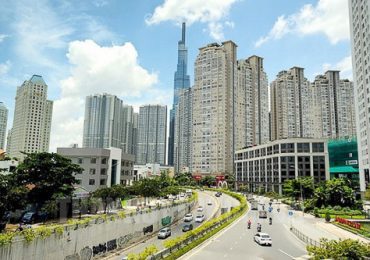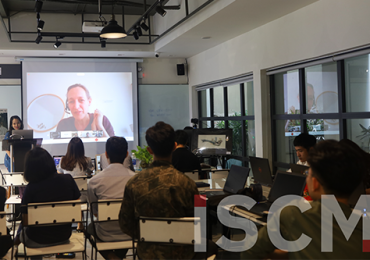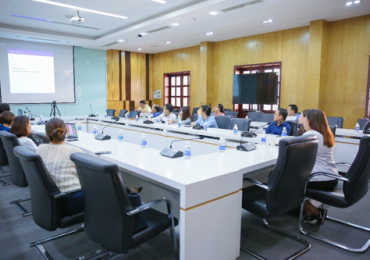Social policy response towards the COVID-19 pandemic in some countries (Part 2): Lessons for Vietnam
28 Tháng Mười Hai, 2023
Recently, to limit the negative impacts of the COVID-19 pandemic, most countries in the world, in addition to health policies, have implemented social policies, however, the extent related to the effectiveness of these policies is not the same. In this article, the authors of the University of Economics Ho Chi Minh City (UEH) mentioned social policy responses in some countries, and on that basis, to draw lessons for Vietnam to be able to cope with the future epidemic crises.

In accordance with the analysis of social policy responses to the COVID-19 pandemic in a number of countries, the authors have drawn some lessons for Vietnam in the second Part of the article.
Policy discussion
Although a strong public health response is arguably the most important and necessary step to address an emergency like the COVID-19 pandemic, it will not be enough to meet the short-term consequences and the longer-term impacts of the COVID-19 pandemic caused by disease control measures. The policy responses of Germany, India, and the United States demonstrate the issues of social policy in response to the pandemic, and the link between social policy and public health policy is crucial. COVID-19 is a protracted crisis; therefore, emergency measures could last for years.
What is special, the social policies implemented during emergencies can shape the country’s socio-economic recovery trajectory by identifying which losses need quick and long-term support. Paying attention to social policy responses allows the Government to gain deeper insight into the social determinants of health.
The underlying social and economic inequality exacerbates the health risks associated with the epidemic and threatens to spread if social policies are not implemented. The connection between public health measures and social policy is important because social policy is not only a way to address the short-term health threat of COVID-19 but also an opportunity to address fundamental inequalities concerning socio-economics.
The success and the failure of public health emergency response depend on its compatibility with social policy. Separating social policy and public health, in theory or practice, weakens both and increases the risk of both failing. The current or future pandemic response strategies should pay attention to social policy supports in the face of public health emergencies.
Policy implications for Vietnam
In order to build and to strengthen social policy systems and social security to adapt flexibly and effectively to pandemics listed as COVID-19, Vietnam, in the coming time, needs to pay attention to the following issues:
* In terms of income guarantee policy
– Economic recovery, after controlling the epidemic and ensuring income for workers, should be given special priority which is to quickly bring workers back to the market through strengthening supply-demand labor connections.
– The impact of the pandemic causes the structure of occupations to change, many new industries appear and focus on the application of information technology and/or e-commerce; occupations requiring high skills will increase while occupations requiring demands for medium and low skills will decrease. Therefore, the issue of supporting career change training and labor market reintegration training needs to receive more attention, to help workers return to the market soon. Small business households and small and medium-sized enterprises need to have priority and incentive policies because this will be the force to recover faster than other types and to create more jobs to attract dynamic workers.
* In terms of insurance policies
Continuing to have policies to encourage and support employees to maintain their participation in social insurance, health insurance, and accident insurance. Promoting propaganda of social insurance, health insurance, and accident insurance policies has actively supported and supported workers in particular and people in general to overcome difficulties caused by the pandemic. This is the most proactive and sustainable social security measure to make people clearly recognize the superior nature of the social insurance policy that our Party and State builds, manages and protects.
– Paying more attention to coordination between Levels, Sectors and Unions in organizing the implementation of social insurance policies, especially voluntary social insurance policies: it is necessary to amend policies and increase support levels. Supporting people to participate in voluntary social insurance in the spirit of ensuring fairness, with priority given to vulnerable groups listed as the poor, the para-poor, low-income people, people with disabilities, and people with disabilities. ethnic minorities, agricultural and rural workers and so on, all of which help them easily access and participate in voluntary social insurance.
– Implementing promptly, accurately and transparently social insurance, health insurance, and accident insurance policies to support workers and people so as to overcome the difficulties through income, healthcare and vocational education supports.
* In terms of social assistance policy
– Promoting reform and resource allocation to expand the coverage of social security support policies for everyone, including those who are having difficulty in meeting their immediate needs. In the long term, it is necessary to build a shock-responsive social security system to strengthen preparedness and response to various risks, including economic crises, natural disasters and epidemics, through regular and unexpected social assistance.
– Removing all barriers to administrative procedures to ensure an effective and timely process of identifying social protection beneficiaries, without discriminating against the most vulnerable groups (including people lacking personal documents, migrant workers and so on; at the same time, completing the criteria and conditions for receiving cash assistance for individual business households and informal workers).
– Ensuring access to social security regimes, including health insurance and effective transfer of benefits through electronic payments, mobile money services, and e-wallets.
– Currently, countries are facing great pressure to consolidate their finances after spending huge sums on crisis response measures. However, if countries cut spending on social security, that action will have serious consequences. Therefore, the social security sector urgently needs to be invested in right now to ensure “no one is left behind” and strengthen the community’s resilience to emergency situations.
* In terms of policies regarding the access to basic social services
– Basic social services listed as health, education, housing, information and communication, environment and so on need to be invested in a synchronous and modern way, paying special attention to the service system at the grassroots level. The reality of COVID-19 epidemic prevention and control shows that the capacity of the service system at the grassroots level has been being very limited in terms of material resources, equipment, and human resources. Besides, the database system from the grassroots level is weak as well as lacking connection and sharing so that we can promptly have solutions to overcome risks such as recent epidemics.
Please refer to the full research Social policy response towards the COVID-19 pandemic in some countries TẠI ĐÂY.
Author group: Dr. Đỗ Lâm Hoàng Trang, MSc. Hoàng Xuân Sơn – Faculty of Political Ideology, University of Economics Ho Chi Minh City (UEH).
This is an article in the series of articles spreading research and applied knowledge from UEH with the “Research Contribution For All – Nghiên Cứu Vì Cộng Đồng” message, UEH cordially invites readers to watch the next Newsletter ECONOMIC No #103.
News, photos: Author Group, UEH Department of Marketing and Communication

[podcast] Phản Ứng Của Chính Sách Xã Hội Đối Với Đại Dịch Covid-19 Ở Một Số Quốc Gia (Kỳ 1)
8 Tháng Mười Hai, 2023
Promoting Learner Autonomy in English Language Learning (Part 2)
28 Tháng Mười Một, 2023
[Podcast] Ngoại giao kinh tế Việt Nam trong thời kỳ đổi mới và hội nhập quốc tế
10 Tháng Mười Một, 2023
ArtTech and sustainable development
27 Tháng Mười, 2023
Cộng đồng ArtTech đầu tiên tại Việt Nam – Một năm nhìn lại
9 Tháng Mười, 2023
ArtTech – Một xu hướng tương lai
5 Tháng Mười, 2023
ArtTech và phát triển bền vững
3 Tháng Mười, 2023
[Podcast] Máy Tính Và Công Nghệ “Không Đi Một Mình” – Phần 4
24 Tháng Bảy, 2023
[Podcast] Tác Động Của Đồng Tiền Kỹ Thuật Số Đến Tỷ Giá Hối Đoái
14 Tháng Mười Một, 2022
[Podcast] Chuyển Đổi Số Trong Ngành Du Lịch Việt Nam
5 Tháng Năm, 2022
[Podcast] Chuyển Đổi Số Trong Lĩnh Vực Y Tế Ở Việt Nam
25 Tháng Ba, 2022
[Podcast] Phân Tích Dữ Liệu Con Người Tại Việt Nam
18 Tháng Ba, 2022
[Podcast] Chuyển Đổi Số Trong Nông Nghiệp Ở Việt Nam
11 Tháng Ba, 2022
[Podcast] Mô Hình Kinh Tế Chia sẻ: Các Vấn Đề Quản Lý Ở Việt Nam
21 Tháng Một, 2022
[Podcast] Nâng Cao Trải Nghiệm Khách Hàng Trực Tuyến Trong Ngành Du Lịch
15 Tháng Một, 2022
[Podcast] Chính Sách Lao Động Việc Làm Cho TP. HCM Trong Giai Đoạn Sau Giãn Cách
28 Tháng Mười Hai, 2021
[Podcast] Xây Dựng Thị Trường Chứng Khoán Phi Tập Trung Dựa Trên Công Nghệ Blockchain
24 Tháng Mười Hai, 2021
[Podcast] Học Tập Suốt Đời Trong Thế Giới Số: Góc Nhìn Từ Nghề Nghiệp Kế Toán, Kiểm toán
21 Tháng Mười Hai, 2021
[Podcast] Học Tập Suốt Đời Tại UEH: Hướng Đến Đại Học Bền Vững
14 Tháng Mười Hai, 2021
[Podcast] Xu Hướng Kinh Doanh Bán Lẻ Trực Tuyến Thời Kỳ Covid
10 Tháng Mười Hai, 2021
[Podcast] Big Data Cho Mục Tiêu Phát Triển Bền Vững: Kinh Nghiệm Quốc Tế
7 Tháng Mười Hai, 2021
[Podcast] Cải Cách Luật Đất Đai Để Thúc Đẩy Phát Triển Kinh Tế
2 Tháng Mười Hai, 2021
[Podcast] Cuộc Cách Mạng Trong Kinh Tế Học Thực Nghiệm
30 Tháng Mười Một, 2021
[Podcast] Chỉ Số Giá Tiêu Dùng Từ Góc Nhìn Khai Thác Dữ Liệu Lớn (Big Data)
17 Tháng Mười Một, 2021
[Podcast] Toàn Cảnh Tiền Tệ Kỹ Thuật Số – Phần 5 : Tiền Ổn Định Tư Nhân Diem
5 Tháng Mười Một, 2021
Đứt gãy chuỗi cung ứng vùng trọng điểm phía Nam: 8 giải pháp
20 Tháng Mười, 2021
[Podcast]Toàn Cảnh Tiền Tệ Kỹ Thuật Số – Phần 2: Những Cột Mốc Phát Triển
19 Tháng Mười, 2021
[Podcast] Toàn cảnh tiền tệ kỹ thuật số – Phần 1: Xu thế của thời đại
15 Tháng Mười, 2021
NGÂN HÀNG BẮT TAY FINTECH (Phần 3): Các Giải Pháp Hỗ Trợ
8 Tháng Mười, 2021
UEH chủ trì thành công Hội thảo ICBF 2021
7 Tháng Mười, 2021
GRSD 2021- Hội thảo khoa học “Tăng trưởng xanh và phát triển bền vững”
6 Tháng Mười, 2021
NGÂN HÀNG BẮT TAY FINTECH (phần 2): Chọn đối tác theo tiêu chí nào?
4 Tháng Mười, 2021
‘Đổi mới giáo dục nghề nghiệp là động cơ tăng trưởng kinh tế’
30 Tháng Chín, 2021
Giải pháp “mở cửa” an toàn với các khu công nghiệp tại TP Hồ Chí Minh
27 Tháng Chín, 2021
Khi cuộc sống “bình thường mới”, nơi ở cho người lao động cần được quan tâm
9 Tháng Chín, 2021
Hướng phát triển mô hình đào tạo luân phiên (Dual Education) tại Việt Nam
6 Tháng Chín, 2021
Webinar: Tương lai ngành Thẩm định giá trong thập niên mới
17 Tháng Tám, 2021
Hãy là người dùng thông minh khi đón nhận và chia sẻ thông tin
9 Tháng Tám, 2021
Webinar: An toàn thông tin kế toán trong kỷ nguyên số
3 Tháng Tám, 2021
Có nên đưa lãi suất tiền gửi VND về 0 phần trăm?
20 Tháng Bảy, 2021
Chu kỳ giảm giá của đồng USD?
TS. Đinh Thị Thu Hồng và nhóm nghiên cứu
26 Tháng Sáu, 2021
Việt Nam cần kịch bản cho thương mại tương lai
ThS. Tô Công Nguyên Bảo
26 Tháng Sáu, 2021
Hệ thống tiền tệ tiếp theo như thế nào?
TS. Lê Đạt Chí và nhóm nghiên cứu
26 Tháng Sáu, 2021
Chuyển đổi số trong trường đại học: Dạy học trực tuyến sẽ trở thành xu hướng tất yếu
GS.TS. Nguyễn Trọng Hoài
26 Tháng Sáu, 2021
Tiền số ngân hàng Trung ương – Vận hành và thử nghiệm
Châu Văn Thành
26 Tháng Sáu, 2021
Chuyển đổi số trong khu vực công tại Việt Nam
Khoa Quản lý nhà nước
26 Tháng Sáu, 2021
“Cấp cứu” doanh nghiệp trước làn sóng COVID-19 thứ 4
23 Tháng Sáu, 2021
Chuyên gia UEH: Việt Nam nên kết hợp tiêm vaccine miễn phí và dịch vụ
23 Tháng Sáu, 2021
Hội thảo khoa học về Thị trường bảo hiểm Việt Nam (Conference on Vietnam’s Insurance Industry – CVII)
Khoa Toán – Thống Kê
7 Tháng Sáu, 2021
Muốn có trung tâm tài chính phải có chiến lược thích ứng
Khoa Tài chính
5 Tháng Sáu, 2021
Bảo vệ thông tin cá nhân trong thời kỳ chuyển đổi số dưới góc nhìn pháp luật
Khoa Luật
5 Tháng Sáu, 2021
Cần đưa giao dịch công nghệ lên sàn chứng khoán
Bộ Khoa học và Công nghệ
5 Tháng Sáu, 2021
Sự hữu ích của Lý thuyết trò chơi: Thảo luận về giải Nobel Kinh tế năm 2020
JABES
5 Tháng Sáu, 2021
Đoán định tư pháp: Xu thế mới trong hành nghề Luật
Khoa Luật
5 Tháng Sáu, 2021
Thiết kế đô thị: tầm nhìn vững chắc cho đô thị bền vững
Viện Đô thị thông minh và Quản lý
5 Tháng Sáu, 2021
Phục hồi du lịch và nỗ lực thoát khỏi vòng xoáy ảnh hưởng bởi Covid-19
Viện Đô thị thông minh và Quản lý
5 Tháng Sáu, 2021
Nghiên cứu Kinh tế học lao động trong sự biến động của thế giới
JABES
5 Tháng Sáu, 2021
Kết hợp Nghệ thuật và Công nghệ hướng đến Thành phố thông minh đáng sống
Viện Đô thị thông minh và Quản lý
5 Tháng Sáu, 2021
Chuỗi bài “The Basics of B2B”: Thị trường việc làm rộng mở nhiều sinh viên chuyên ngành Marketing đang bỏ quên
TS. Đinh Tiên Minh
5 Tháng Sáu, 2021
Môi trường không phải để nhà đầu tư xài miễn phí!
TS. Phạm Khánh Nam
5 Tháng Sáu, 2021
2021 sẽ là năm khởi đầu của chu kỳ tăng trưởng mới
PGS.TS Nguyễn Khắc Quốc Bảo
5 Tháng Sáu, 2021
Quỹ vaccine sẽ khả thi khi có người dân đóng góp
Phạm Khánh Nam, Việt Dũng
5 Tháng Sáu, 2021
Kích thích kinh tế, gia tăng vận tốc dòng tiền
Quách Doanh Nghiệp
5 Tháng Sáu, 2021
Đi tìm chiến lược hậu Covid-19 cho doanh nghiệp bảo hiểm Việt Nam
PGS TS Nguyễn Khắc Quốc Bảo, ThS Lê Văn
5 Tháng Sáu, 2021
Insurtech – Cơ hội và thách thức cho Startup Việt
Ths. Lê Thị Hồng Hoa
5 Tháng Sáu, 2021


